Aquaculture Programs Help Students Dive in to Careers
Emily Hataway wants to be a marine biologist. Luckily, she’s a student at South Brunswick High School, which makes her path to that career a whole lot easier.
That’s because the Southport school has a program in aquaculture that is unequaled across the country. It’s where young people can get their feet wet learning how to breed and care for fish in a unique learning environment. Plus, the high school is less than 20 minutes away from Brunswick Community College, which has established itself as a leader in aquaculture higher education, too.
The thriving aquaculture industry in North Carolina continues to reap the benefits from both programs. And students like Hataway, a senior, benefit as well.
“Being able to actually handle and care for the animals and get a feel for the physical work while still in high school provides me with a great opportunity,” Hataway says. She plans to complete an associate’s degree in aquaculture at Brunswick Community College after graduation and then enter the marine fisheries program at the University of North Carolina Wilmington.
Barry Bey has been teaching students like Hataway since 1987, when he established the South Brunswick aquaculture program – the first of its kind in North Carolina. Bey helped design the curriculum for the community college program, too, which was established by Dr. Doug Holland, the current director, in 1994.
“Our community’s program is unique because we have exceptional community support, and we provide a ladder of education that you can’t find anywhere else,” Bey says. He explains that aquaculture is agriculture but instead of growing in soil, you learn to grow in water.
SEE MORE: Fish Facts
With an aquaculture lab that includes everything from small aquariums to 1,100-gallon tanks, South Brunswick High School has plenty of water and plenty of students interested in learning about the fish that inhabit it, including bass, trout, bluegill, flounder and tilapia.
“Our students learn to identify fish, stock fish, harvest fish and convert flounder from saltwater to freshwater,” Bey says. “They do everything from checking water quality to feeding fish to checking aerators to cleaning tanks to mopping floors to writing a business plan. They also have been growing southern flounder and stocking Davis Canal on Oak Island since 2006. Our goal is to prepare students for a career in aquaculture through a variety of hands-on experiences and to teach them the importance of science and environmental awareness.”
As a solar-powered fish farm, it delivers on all of those objectives. And students and the local aquaculture industry aren’t the only ones who think so.
The John Muir Association recently presented the South Brunswick Aquaculture Program with their Environmental Education Award, the latest in a long list of honors for the program. The program is also internationally known for its work in stock enhancement.
Brunswick Community College has plenty of water, too. In addition to the 9,000 gallons of water inside the facility, students have the opportunity to work with animals in 24 quarter-acre ponds and a handful of acre ponds that are fully stocked.
“We have 20 to 30 students in our program,” says Chad Gray, instructor and fish farm manager at the college. “We give them the opportunity to have hands-on experience with everything from the egg stage to processing. We get students ready for water-related, fish-related aquatic invertebrate fields.”
These fields continue to grow across the state. In fact, the aquaculture industry in North Carolina has a farm gate value of $55 million, which includes fish production, processed product and feed produced. The programs built at South Brunswick High School and Brunswick Community College as well as North Carolina State, UNCW and Carteret Community College help educate the students who keep the aquaculture industry strong.
– Cathy Lockman


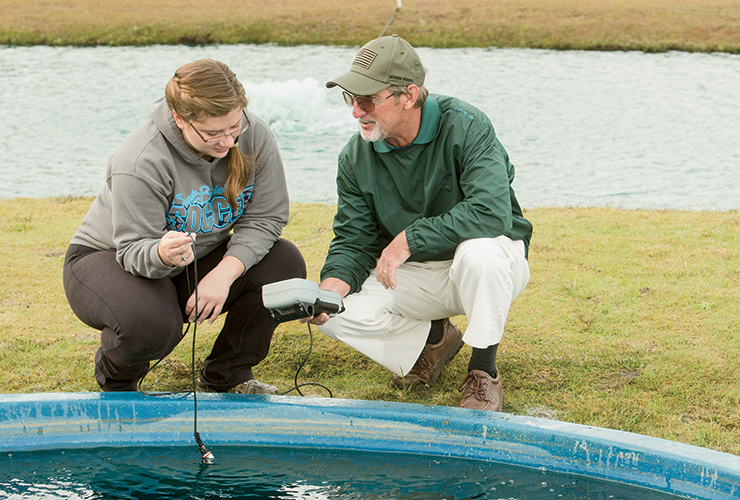

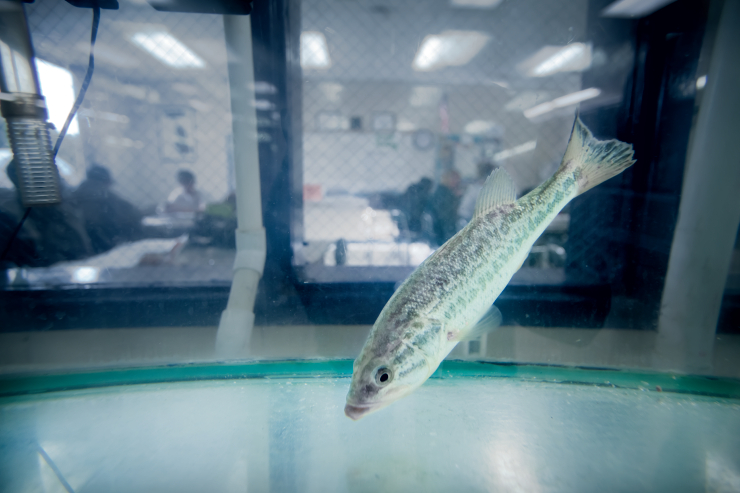
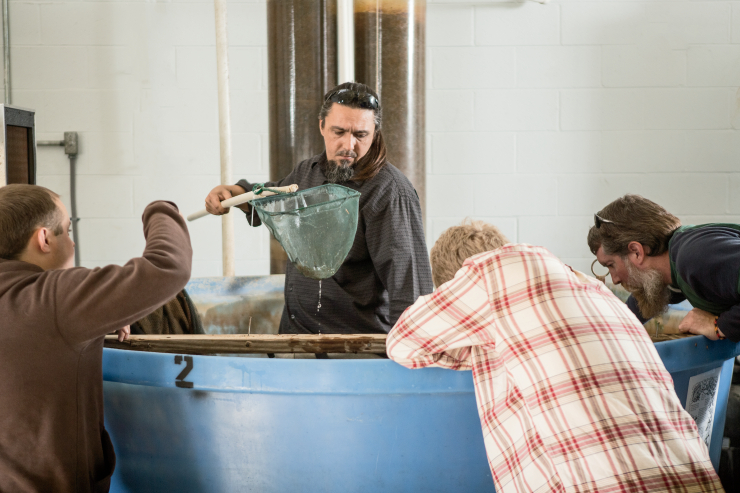
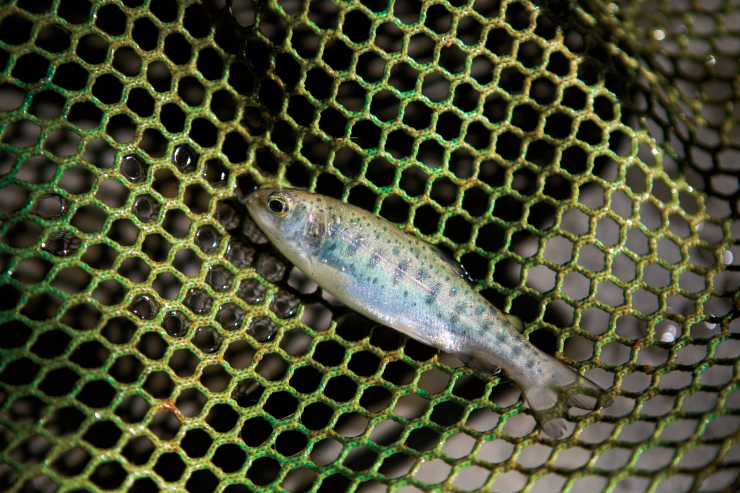

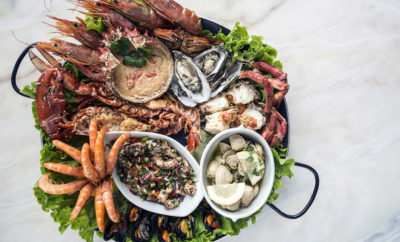
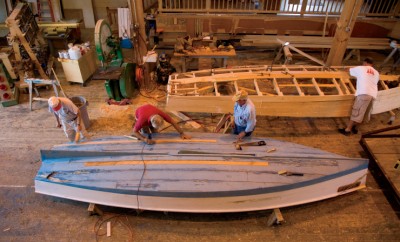
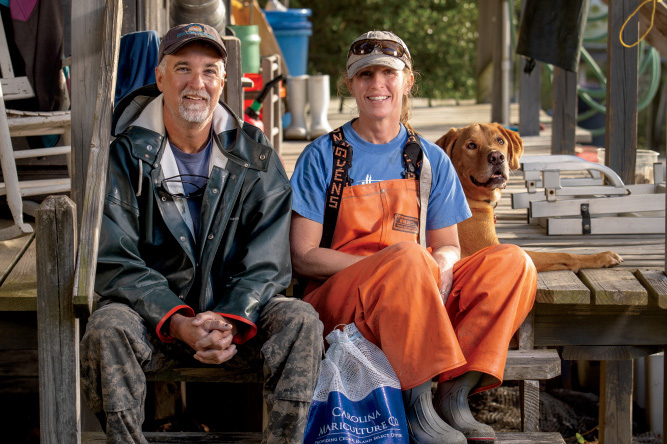
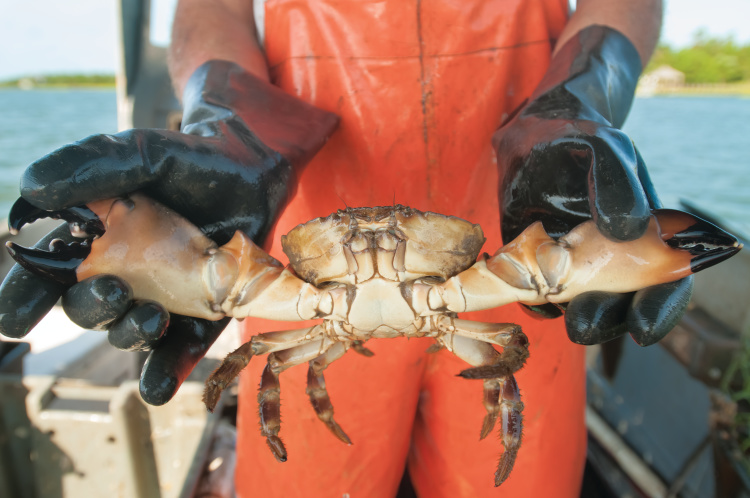
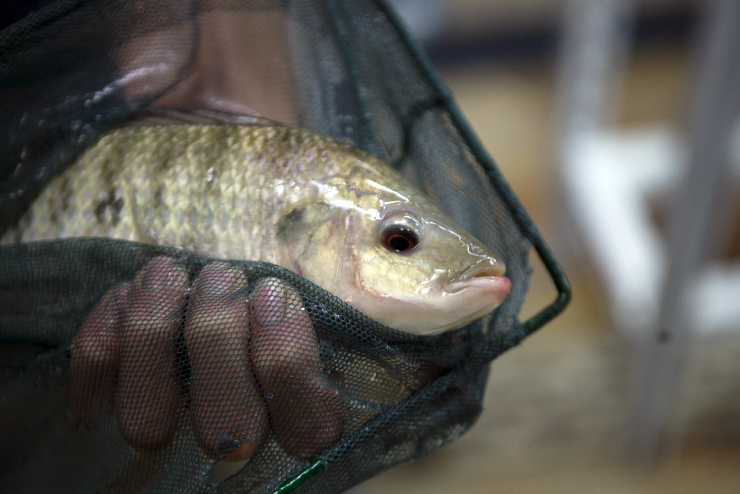
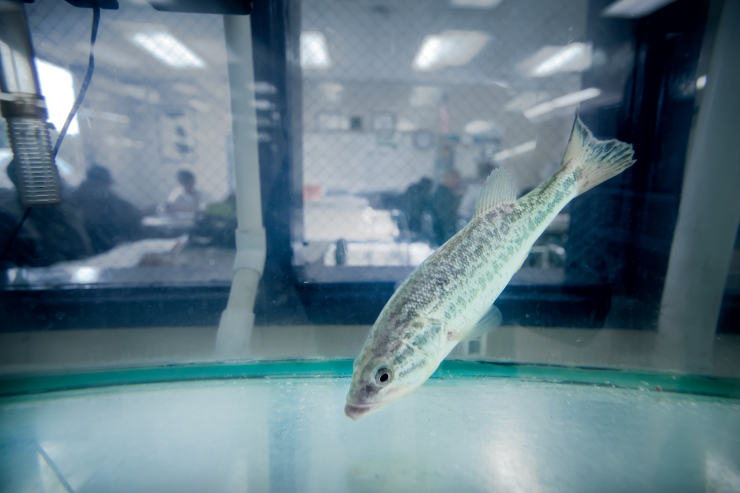

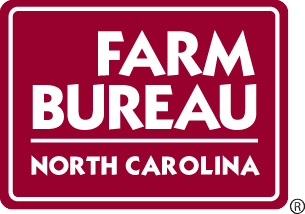
 North Carolina Field and Family magazine highlights farms and foods, events and attractions, and interesting people and places throughout the state.
North Carolina Field and Family magazine highlights farms and foods, events and attractions, and interesting people and places throughout the state.
David
June 9, 2014 at 2:52 pm
This is great article!
Brian
June 9, 2014 at 2:53 pm
I agree this is very informative. Can you send me some information??